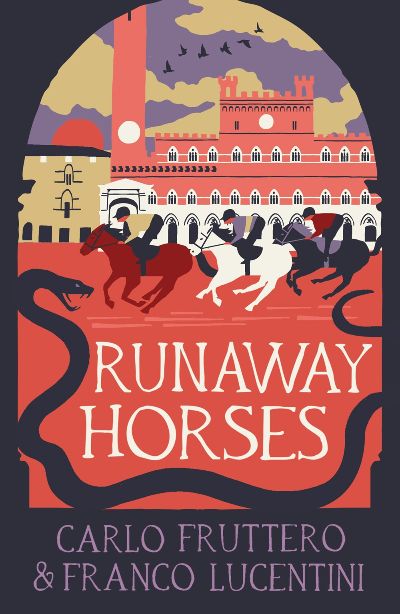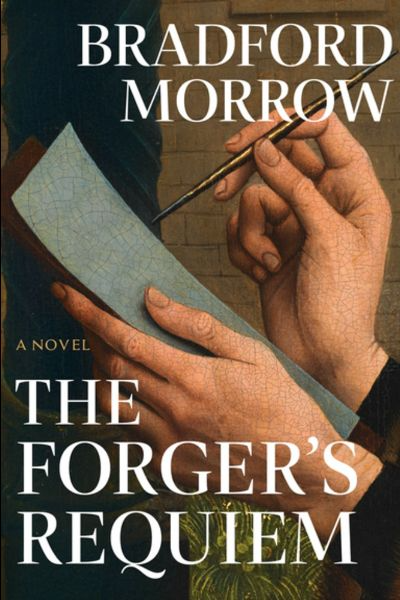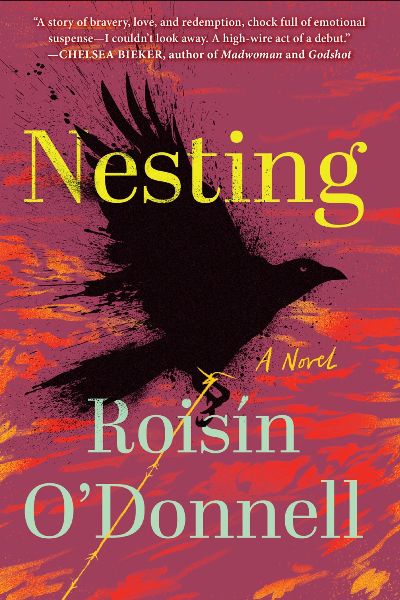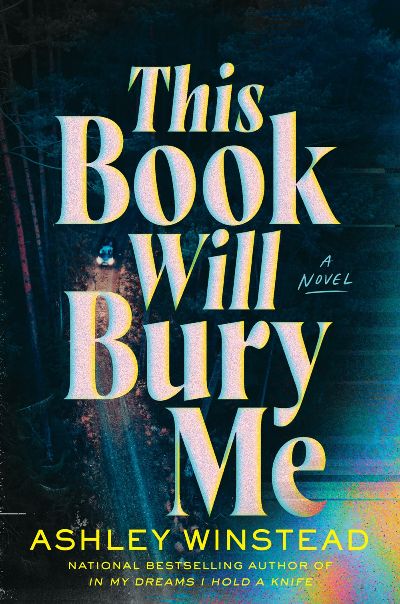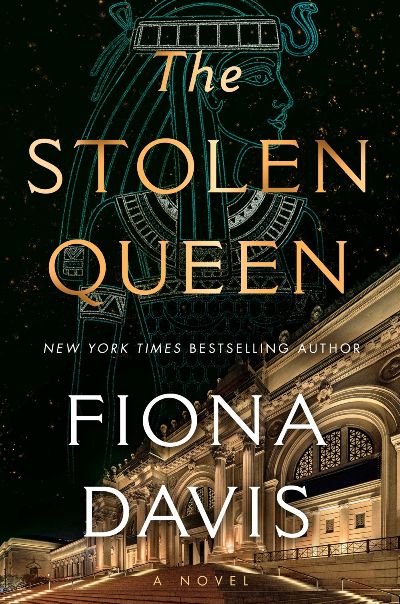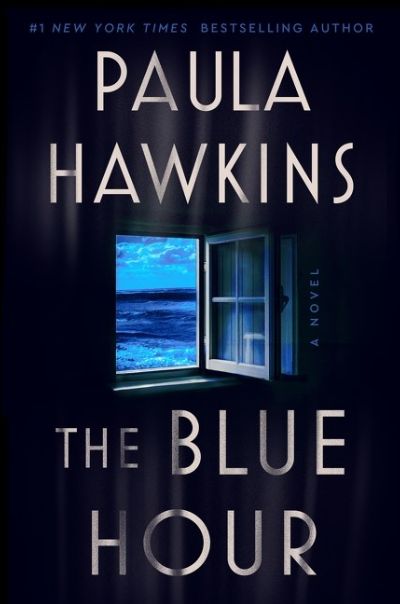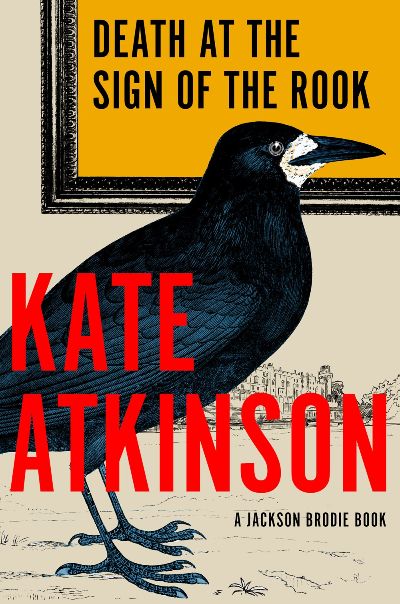Eight months after a traumatic on-the-job accident almost killed her, George (Georgina) Lennox has been assigned her first case as a newly promoted Glasgow DI: to investigate the suicide of 18-year-old Alan Ferguson on a remote island in the Scottish Hebrides. A disappointed George protests to her boss: “Because nothing happens out there. These islands are medieval time capsules with a population of relics.” Arriving on the stark and barren Eilean Eadar with her partner, Richie Stewart, she finds an isolated community that still clings to its ancient Catholic faith (in Protestant Scotland) and that is deeply suspicious of outsiders. As George and Richie interview the locals, George senses that something is off about the place and its people. Mysterious double spirals are engraved into the village houses and farm crofts. The long abandoned lighthouse where Alan fell is also the site where three lighthouse keepers disappeared mysteriously a century ago. Late at night, George hears the howling of a wolf and spots a masked figure outside her window. Who is trying to thwart the investigation? At the same time, George and Richie clash over the DI’s use of prescription pain medication and her reckless tendency to charge into risky situations without backup. George is a compelling sleuth, tough yet also vulnerable and not always likable, but she has great chemistry with the fatherly Richie. Debut author McCluskey has written a compellingly spooky and creepy mystery with a hint of folk horror à la The Wicker Man. Fans of Ann Cleeves’s Shetland crime novels and Peter May’s Lewis Trilogy will delight in this atmospheric thriller.
Literary
And now for something completely different. Carlo Fruttero and Franco Lucentini were well-known Italian authors who co-authored several mysteries, throughout the 1980s and ‘90s, under their surnames of Fruttero & Lucentini. Their best-known works are The Lover of No Fixed Abode, set in Venice, and The Sunday Woman, which was made into a film starring Marcello Mastroianni and Jacqueline Bisset. Runaway Horses takes place in Siena during the Palio of Siena, the biannual horse race that the Sienese have been celebrating since the 13th century. It features lawyer Enzo Maggione and his wife, Valeria, who are traveling from their home in Milan to Siena, visiting Valeria’s brother along the way. But the two never make it to the farm; instead, they encounter a violent storm and take refuge in a nearby, sprawling estate. Here they find a most idiosyncratic group, including Puddu, the best known of the Palio’s jockeys. Fruttero and Lucentini take the reader deep into the arcane practices of the Palio, which are full of plots and counterplots, while Enzo and Valeria discover their attraction not only to each other but to other residents on the estate as well. Readers with an interest in Siena may enjoy the exhibit Siena: The Rise of Painting 1300-1350, which is currently on display at the Metropolitan Museum and will travel to Britain’s National Gallery in spring 2025.
Literary forger Henry Slader unexpectedly finds himself in an Edgar Allan Poe story when he, concussed and bruised, awakens in a shallow grave. Shakily digging himself out, Slader gradually remembers that Will, his old rival, and his daughter, Nicole, assaulted him with a shovel after a deal involving the forgery of a rare Poe book went bad. Determined to avenge himself on Will (20 years of bad blood between the two men includes a violent attack that landed Slader in prison) and needing to raise cash, Slader blackmails Nicole, a budding artist and a talented forger, threatening to expose her father’s role in the unsolved murder of her uncle. After forging inscriptions by such authors as Ernest Hemingway and Gertrude Stein, Nicole is tasked with creating a cache of letters by Frankenstein author Mary Shelley, a valuable trove that will enable Slader to retire permanently from the forgery business. But even the best-laid plans can go astray. A shocking climax at Mary Shelley’s grave in Bournemouth, England, leads a stunned Nicole to wonder what “drives people to such lunacy.” Toggling between Slader’s third-person perspective and Nicole’s first-person narrative, Morrow offers fascinating insights into the literary forger’s art. Although this is the concluding volume to the author’s trilogy (The Forgers, The Forger’s Daughter), it can be read as a dark, twisty standalone thanks to plenty of backstory.
Even during her sly, vicious husband Ryan’s “good” moments, Ciara feels “part of her body (toe tips, ear lobes, the backs of her knees) is listening, tense, on high alert.” And in his bad moments, “The toppled chair. The smashed bulb. The broken handle. Her bones and blood.” She’s left before, but his rage at her absence was too dangerous to endure. But when she sees a new opportunity, she takes her two small daughters and flees. Here the reader will begin to understand the naivete of “why doesn’t she just leave?” (Why doesn’t anybody ever ask why he doesn’t “just” leave?). Dublin’s rental market is impossible, so Ciara and the children are homeless, forced to stay in a cramped hotel room provided by the city. Ciara, who is pregnant with her third child, has no job, at controlling Ryan’s insistence, of course. Her mother-in-law tells her that she’s going to hell for treating “poor Ryan-Patrick” this way. Child support is non-existent, and Ryan is determined to take full custody of the children even though he appears to hate them and has never lifted a finger to care for them. Watching Ciara claw her way out of this is a gripping view of endurance, terror, bravery and the small and large kindnesses that make her life bearable. The characters here are superbly drawn, the dialog spot on, and I can’t wait for more from this debut novelist.
The world of amateur true-crime investigators—and what a populous world it seems to be!—is given its own investigation in Winstead’s (Midnight is the Darkest Hour, 2023) latest, with the author using murders at a sorority house to show who benefits from and who’s destroyed by the trend of podcasters as police. Readers enter through the screen of Janeway Sharp (Star Trek fandom plays a big role here), the youngest of a group that calls itself the Real Crime Network. She’s drawn to the work after the sudden death of her beloved father and grows an obsession with true crime even though she feels it is wrong. In the Network, she finds forgiving and encouraging brethren who are only too happy to accompany her into the frightening details surrounding the murder of three sorority sisters who were stabbed and left in a bloodbath. Jane, now called Searcher, and her companions can’t stay away from the college town in question, Delphine, Idaho. Readers are taken to new viewpoints along with them, meeting the families in question, the townspeople who are suddenly besieged by murder groupies, and the police and FBI, who are willing to take the help when the Network starts to be successful. Suspects, twists, and danger add to the media-cult side of the tale, adding up to a smart whodunit with a side of contemplation.
The very ancient and the more recent past, the glamor of the fashion world and the dust from excavating for antiquities meet in Davis’s thrilling saga of female determination. In the 1936 part of the story, novice archaeologist Charlotte Cross braves searing temperatures, colonial snobbery, and sexism on a dig in Egypt’s Valley of the Kings, when she unexpectedly finds both treasure and love. In 1978, we find Charlotte working on Egyptian artifacts in New York’s Metropolitan Museum of Art and bristling when jewelry from the vast collection is earmarked for use on a mannequin at the Met Gala. (No Kardashians were harmed in the making of this book.) On the fashion side of the gala loan is Annie Jenkins, a young woman who’s under her lazy mother’s heel until her life starts to open up after a chance meeting with Diana Vreeland. Happenings on the night of the gala fuel the rumor that female Pharaoh Hathorkare, a subject of Charlotte’s work in the ‘30s and now, brings destruction to anyone who deals with her. (An author’s note explains that Hathorkare is loosely based on Hatshepsut.) Finding out who’s really behind an audacious crime at the gala reveals why Charlotte hasn’t been able to face visiting Egypt all these years. It also shines a light on the real-life debate around repatriation of art to its country of origin. A thought-provoking and exciting read.
A beautifully rendered story of deceit and ambition, lies and mysteries. Well-known artist Vanessa Chapman lives on an island off Scotland that’s accessible only 12 hours a day, during low tide. When the sea returns, it creates its own, albeit temporary, closed circle. Twenty years ago, Vanessa’s sometime husband disappeared, which was a bit of a surprise, although he seemed to regularly come and go. When Vanessa eventually dies as well, she leaves her estate in the hands of the Fairburn Foundation; young curator James Becker; and Grace Haswell, a doctor who is the executor of Vanessa’s estate, companion of twenty years, and perhaps lover. It’s all antipathy and snark between James and Grace until a discovery comes to light that forces a reexamination of power and ambition. A poignant and thoughtful examination of a life and a death.
The five novels featuring former police officer Jackson Brodie—this would be the sixth—are each a bit idiosyncratic. But Atkinson’s many fans need to brace themselves for this title, a delightful, cozyish homage to the Golden Age of Detective Fiction. We start out at a Murder Mystery Weekend in Rook Hall, “a country house hotel located within Burton Makepeace House, one of England’s premier stately homes.” Dowager Marchioness Lady Milton and her hateful offspring have already auctioned off most of the artwork, commercialized what they could, and sold the remaining cottages. Back to Jackson, hired by a brother and sister to track down their mother’s carer, who disappeared with a Renaissance portrait—artist and provenance unknown—shortly after their mother died. There are some extraordinary similarities, not in the art itself, but between how the Renaissance work, and a Turner painting that went missing from Burton Makepease House several years back, were stolen. Which is how Jackson ends up at the Mystery Weekend. This book dazzles in three ways. One, the interior monologues—Atkins goes deep into the lives of many of the characters—are just brilliant. Two, the dialogue is terrifically clever, with the aristocrats in particular pulling no punches. Three, the gathering for Mystery Weekend brings together all manner of participants, from the vicar to a California cardiologist to an army major to a couple of corpses, in an evening that turns out to be as dark as it is comic. And did I mention the snowstorm that traps them all in Burton Makepeace House?
Spotting a sleek Mercedes SL sports car parked in a sloping field below a house, its engine still running and the driver’s door left open, Denton Wymes, on his way home from fishing, pauses to investigate. It’s a moment that the isolated loner will soon regret as he becomes caught up in a missing-person case that will turn his life upside down. Before Wymes can retreat, a man named Armitage approaches, claiming his wife has thrown herself into the sea. Together they walk up to the house to telephone for help. Armitage’s behavior is odd (“he seemed more excited than distressed’) and Wymes senses that the tenant answering the door, Charles Rudduck, recognizes Armitage. Called in from Dublin to investigate is Detective Inspector St. John (pronounced “Sinjun”) Strafford, who is also juggling a complicated personal life (an estranged wife and a lover who is the daughter of his colleague, state pathologist Quirke). In late 1950s Ireland, divorce is illegal, and Anglo-Irish social tensions remain strong. Banville deftly captures the prejudices and suspicions between the groups. “You’re not a Paddy, then” says Armitage to Wymes, who stiffly corrects him that he is Irish, but not “bog Irish.” In a mostly Catholic police force, Strafford stands out as the rare Protestant. His investigation gradually uncovers secrets that go back years and into previous series installments, but enough back information easily guides new readers through the complex plot. Banville ends his fourth Strafford/Quirke crime novel (after The Lock-Up) on a haunting, ambiguous note. With its complicated, not always likable protagonists, this beautifully written book will appeal to fans of literary mysteries in the vein of Kate Atkinson’s and Tana French’s works.
This sequel to Trussoni’s 2023 The Puzzle Master (my favorite book of all time!) finds savant Mike Brink once more faced with a puzzle that others have found unsolvable. This time his help is requested by the Japanese imperial family, who dispatch another puzzle genius, Sakura Nakamoto, to whisk him from New York to Tokyo. Mike is well known for his work creating puzzles and taking part in competitions in which participants recite the string of numbers that form pi, his synesthesia allowing the numbers to appear “as a scale of color at the edge of his vision.” These are the upsides of the accident that left him an affable genius. But there are drawbacks. He’s so far been unable to form any romantic relationship and struggles to understand himself. So when Sakura tells him that the beautiful Dragon Puzzle Box, a puzzle that’s uber-famous in Mike’s world, is available for him to try, and that it will help him to understand his gift, he jumps at it. This is no ordinary box—others who have tried to open it have had fingers amputated or been poisoned by the puzzle’s booby traps. Work on it takes Mike on thrilling journeys not only to fascinating Japanese locales but further into the recesses of his mind than he thought possible. Engrossed readers will happily make the trips with him. While you’re waiting for this wonderful follow-up, get The Puzzle Master and read our interview with Trussoni when that book was published.


